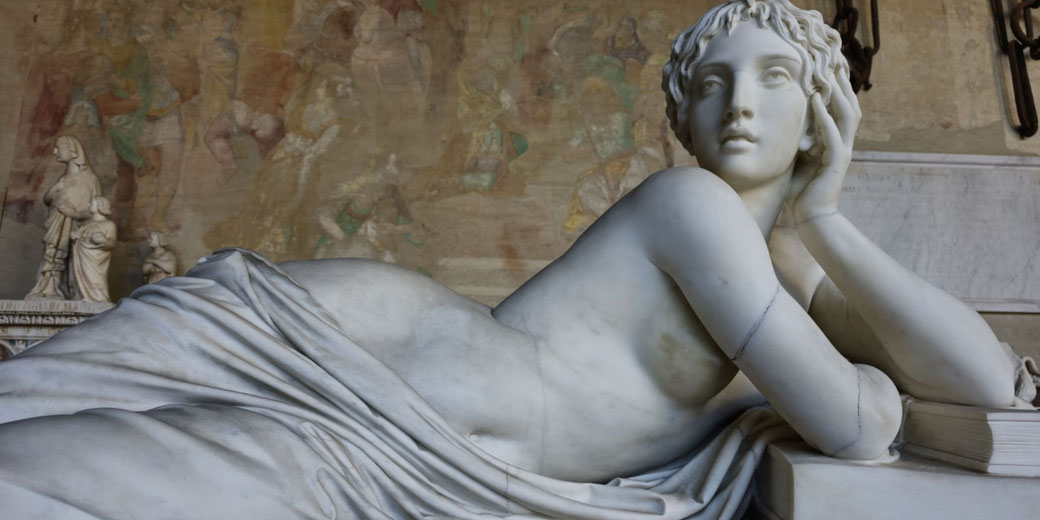Who was Helen of Troy, the most beautiful woman in Greece that started the Trojan War?

Imagine a woman who is considered to be so beautiful that she ignites a war, and is then known forever as 'the face that launched a thousand ships'.
This is Helen of Troy, an emblem of beauty and desire, whose life became intertwined with mass slaughter as men sought to control her through warfare.
But who was Helen beyond the legend?
Was she a pawn in the hands of gods and men, or did she wield power in her own right?
Did her beauty alone spark one of the most famous wars in mythology, or were there other, deeper causes?
The mythical stories of her birth
Helen's story begins with her miraculous birth, a consequence of Zeus's infatuation with Leda, her mortal mother.
In a tale that reflects the capricious nature of the gods, Zeus, transformed into a swan, seduces or, in some versions, assaults Leda, leading to Helen's birth from an egg.
The young girl is then adopted by Leda's husband, King Tyndareus of Sparta.
Helen was raised in a royal household, a setting that combined luxury with the rigorous disciplines typical of Spartan culture.
As she became a teenager, her education, as was befitting a princess, would have included lessons in poise, eloquence, and the domestic arts, essential skills for a woman expected to marry into royalty.

As the most sought-after woman of her time, Helen's hand in marriage was coveted by many powerful suitors from across Greece.
To avoid conflict, Tyndareus, Helen's father, devised a plan wherein all suitors swore an oath to respect his choice and support the chosen husband should any dispute arise.
This oath, known as the Oath of Tyndareus, would later play a critical role in the events leading to the Trojan War.
Menelaus was chosen as Helen's husband, a decision influenced by both political and personal factors.
Menelaus, though not the most distinguished of her suitors, offered the promise of stability and alliance.
His brother, Agamemnon, king of Mycenae, was a powerful figure, and the marriage aligned Sparta with Mycenae, fortifying both states' political positions in the Greek world.
This alliance was a significant consideration in a time when marriage was often used as a tool to forge political connections and strengthen kingdoms.
Helen's life in Sparta as Menelaus' queen was one of both prominence and constraint.
As queen, she would have had significant responsibilities and enjoyed a certain level of respect and influence.
However, her primary role was to bear and raise heirs, a duty that was central to the stability of the royal lineage.
Her relationship with Menelaus is less emphasized in myths compared to her later involvement with Paris of Troy, yet it is crucial in understanding her position within Spartan society.
Helen's dramatic abduction by Paris of Troy
Helen's beauty, however, was a double-edged sword. It brought her attention and admiration but also made her a pawn in the games of the gods.
Her most famous tale is the Judgment of Paris, an event that underscores the divine influence in her life.
Paris, a prince of Troy, was tasked by Zeus to select the fairest goddess from Hera, Athena, and Aphrodite.
Each goddess offered Paris a bribe, and he ultimately chose Aphrodite, who promised him the most beautiful woman in the world, Helen, regardless of her marital status.
Paris then visited Sparta under the guise of a diplomatic mission. During his stay, he met Helen, and with the influence of Aphrodite, they fell in love, or in some versions, Helen was beguiled by Aphrodite's power.
The nature of her departure with Paris—whether it was a willing elopement or an abduction—varies in different accounts.
In some narratives, Helen is depicted as a victim of fate and divine manipulation, while in others, she is portrayed as an active participant, driven by love or lust.
The departure of Helen and Paris for Troy was an act that had profound consequences.
Menelaus, upon discovering Helen's absence, invoked the Oath of Tyndareus, compelling all of Helen's former suitors to fulfill their pledge to defend her chosen husband's rights.
This collective obligation led to the formation of the Greek alliance against Troy, marking the beginning of the Trojan War.
Thus, the abduction of Helen was not merely a personal or romantic affair but a catalyst for one of the most legendary conflicts in ancient history.
The Trojan War and the battle for Helen
The Trojan War, which lasted ten years, saw a coalition of Greek states, led by King Agamemnon, lay siege to the city of Troy to reclaim Helen and restore Menelaus' honor.
This prolonged battle, immortalized in Homer's "Iliad," was characterized by heroic feats, divine interventions, and a complex interplay of personal vendettas and honor.
Helen's role in the Trojan War is nuanced. While her abduction was the war's catalyst, her presence in Troy and her interactions with the Trojan royal family add layers to her character.
In some accounts, she is treated with respect and even admiration by the Trojans, including Priam, the king of Troy.
However, she is also a constant reminder of the war's cause, living as a figure of both reverence and resentment.
Throughout the war, Helen is portrayed as a figure of sorrow and regret.
The "Iliad" describes moments where she reflects on the pain and destruction caused by her departure from Sparta.
She is often seen gazing upon the battlefield, lamenting the loss of life and the suffering of both Greeks and Trojans, making her a sympathetic, if tragic, figure.
The war itself was marked by iconic moments and figures: the valor of Achilles, the heroism of Hector, and the cunning of Odysseus.
The involvement of the gods, taking sides and influencing the outcome, highlights the theme of fate and divine will prevalent in Greek mythology.
The conflict ended with the famous stratagem of the Trojan Horse, leading to the fall of Troy, an example of the cunning and ruthlessness of Greek warfare.
In the aftermath of the Trojan War, Helen's fate varied in different stories.
In some versions, she is reunited with Menelaus, her return to Sparta viewed as a restoration of the natural order.
In others, she faces a more tragic end.
Was there a real 'Helen of Troy'?
The quest to uncover historical and archaeological evidence for Helen of Troy and the events of the Trojan War has fascinated scholars for centuries.
While the story of Helen and the war is rooted in Greek mythology, the question of their basis in historical reality has led to numerous archaeological investigations, most notably the excavations of Troy.
The ancient city of Troy, located in what is now modern-day Turkey, was first excavated by Heinrich Schliemann in the late 19th century.
Schliemann's discoveries, including the ruins of a city and various artifacts, suggested that the Troy described by Homer in the "Iliad" might have been more than just a mythical place.
Further archaeological work throughout the 20th and 21st centuries has revealed several layers of cities built upon each other at the site, indicating a long history of settlement and destruction that aligns, to some extent, with the timeline of the Trojan War as described in Greek mythology.
However, the historical existence of Helen herself is far more elusive.
Unlike the city of Troy, there is no direct archaeological evidence confirming Helen's existence.
Her story, along with those of other characters in the "Iliad" and related works, remains within the realm of legend.
The lack of concrete evidence for Helen and other individual figures from the Trojan War saga suggests that these stories may have been embellished or entirely crafted by ancient storytellers, blending historical events with mythological elements.
The Trojan War myths aligns with the Late Bronze Age, a period marked by significant interactions among the civilizations of the Eastern Mediterranean.
These interactions included trade, warfare, and cultural exchange, providing a plausible backdrop for a conflict like the Trojan War.
Some historians propose that the war, if it occurred, might have been part of a larger pattern of conflicts during this era.
The power of Helen's life and symbolism
Helen's beauty, often described as unparalleled, has become a symbol of the power and peril inherent in physical allure.
This aspect of her story speaks to the broader human experience of desire and its capacity to drive individuals to actions that can have far-reaching consequences.
The enduring intrigue around Helen of Troy highlights the human fascination with beauty, power, and the complexities of love and desire.
Her story, evolving through the ages, serves as a canvas upon which each generation projects its anxieties, aspirations, and values.
Philosophically, Helen's narrative raises questions about the interplay of free will and destiny.
The gods play a significant role in her story, directing her fate and influencing human affairs.
This aspect of her tale delves into the ancient understanding of the gods' role in human life and the extent to which mortals can exercise free will.
It also touches on the concept of blame and responsibility, particularly in the context of Helen's role in the Trojan War.
In feminist discourse, Helen has been reclaimed as a symbol of female power and autonomy.
This perspective challenges the traditional view of her as a passive object of desire, instead presenting her as a woman with desires and choices of her own, even within the constraints of her historical and mythological context.
This reevaluation is part of a broader trend of examining historical and mythological women's stories through a lens that recognizes their agency and individuality.
What do you need help with?
Download ready-to-use digital learning resources
Copyright © History Skills 2014-2025.
Contact via email
With the exception of links to external sites, some historical sources and extracts from specific publications, all content on this website is copyrighted by History Skills. This content may not be copied, republished or redistributed without written permission from the website creator. Please use the Contact page to obtain relevant permission.





